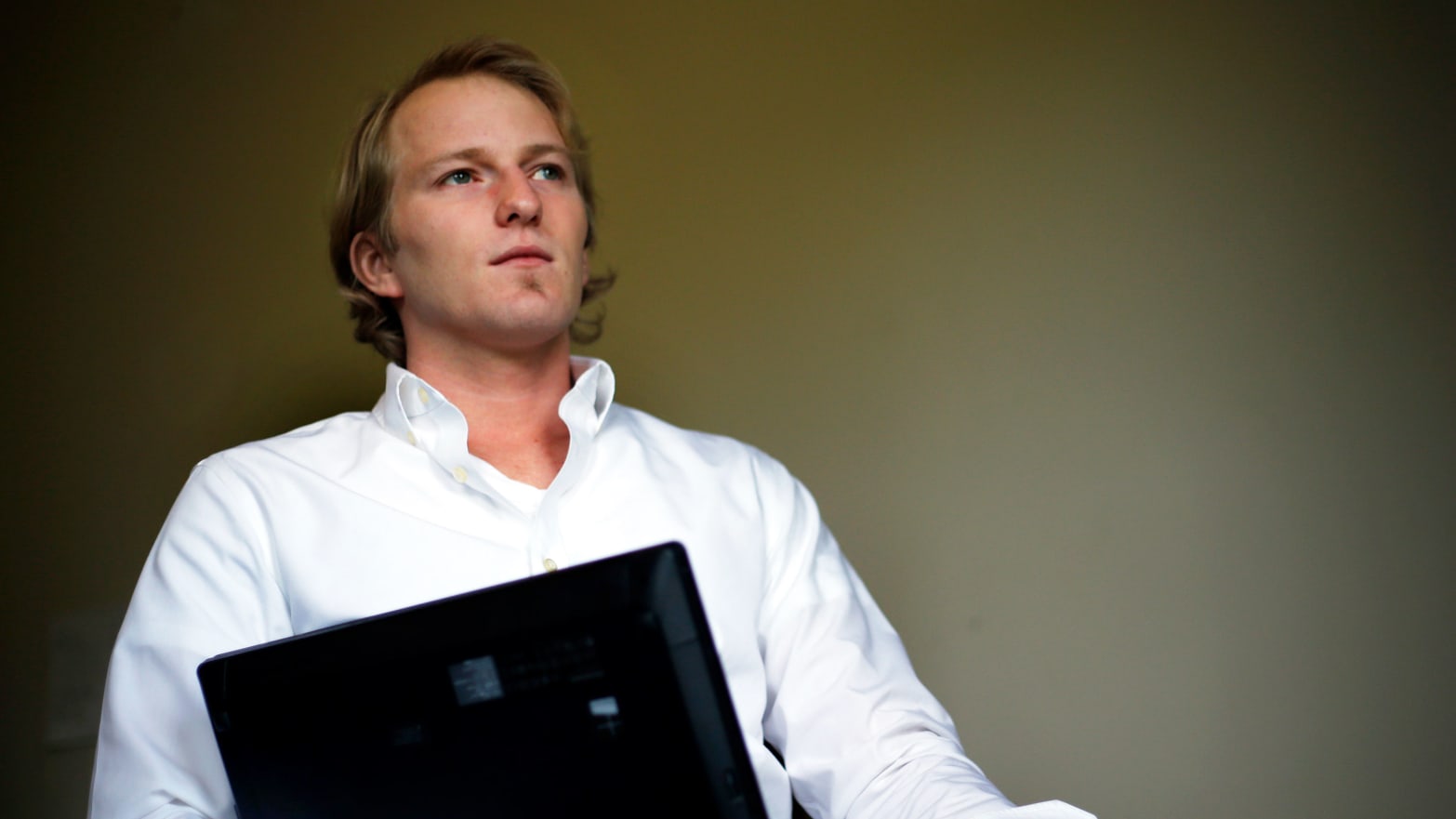Chelsea Manning isn’t alone.
Late Thursday, Manning revealed that she’s fighting a subpoena to testify before a grand jury that’s been investigating Julian Assange for nearly nine years. But Manning isn’t the only one being dragged into the aging probe of WikiLeaks’ first big haul. A former WikiLeaks volunteer who was also personal friends with Manning was subpoenaed last May. But unlike Manning, he did not fight the subpoena. He accepted an immunity deal offered by prosecutors.
It’s the second person in Assange’s broader orbit publicly known to have cooperated with prosecutors in their nearly decade-long pursuit of WikiLeaks.
Manning told the New York Times that she’s been subpoenaed to appear before a grand jury in Alexandria, Virginia on March 5th. Manning, who was released from prison in 2017 on a clemency grant from Obama, vowed to fight the subpoena in court. “I am not going to contribute to a process that I feel is dangerous and could potentially place me in a position where I am forced to backtrack on the truth,” she told the paper.
She made good on that vow Friday morning by filing a motion to quash the subpoena, according to her attorney, New York lawyer Moira Meltzer-Cohen. “At the insistence of the clerk, the motion was filed under seal,” said Meltzer-Cohen in an email to The Daily Beast. “Our position is that litigation regarding the enforceability of a subpoena does not implicate grand jury secrecy, and we will move to have it unsealed. Chelsea, as you might expect, wants to bring some transparency to this process and hopes to be able to share the filing soon.”
Manning’s subpoena is the latest surge of action in an old case given new life under the Trump administration. Though the paperwork doesn’t specify what she’s expected to testify about, a case number is visible at the top of the page. It’s the known case number for a grand jury probe into WikiLeaks that began nine years ago in the middle of Assange’s dump of the hundreds of thousand of diplomatic cables and Army field reports leaked to him by Manning.
The existence of case 10GJ3793 first became public in early 2011 when prosecutors were papering companies like Google and Twitter with demands for records of key WikiLeaks activists. With the government’s consent, Twitter notified five users that the feds were after their records, and three of them went to court to challenge the lawfulness of the search, backed by the ACLU and Electronic Frontier Foundation.
After two years of litigation, in 2013 an appeals court sided with the government against the three WikiLeaks activists: Jacob Appelbaum, Icelandic MP Birgitta Jonsdottir, and Dutch businessman Rop Gonggrijp.
The investigation continued mostly in secret after that, with artifacts of the probe occasionally surfacing after the fact. In June 2011 a handful of Manning’s friends in Boston were subpoenaed to testify before the grand jury. One of them, David House, was also a WikiLeaks volunteer, and he pleaded the Fifth Amendment in the grand jury chamber and released a list of the questions he was asked on the internet afterwards.
Two months later, an Icelandic WikiLeaks staffer named Sigurdur Thordarson started secretly spying on the group for the FBI. He met with prosecutors in Virginia in February 2012 and later turned over eight hard drives of internal WikiLeaks chat logs and media. Around the same time the government obtained a search warrant for the Gmail inbox of another WikiLeaks volunteer in Reykjavik.
The paperwork showed that the grand jury was investigating Assange for potentially violating the Computer Fraud and Abuse Act and the Espionage Act in connection with the Manning leaks.
But the case went nowhere. The Obama administration ultimately decided that prosecuting Assange for accepting and publishing leaked documents would run into First Amendment issues. The WikiLeaks founder has been holed up in the Ecuadorian embassy in London since August 2012, when he breached bail to avoid extradition to Sweden over accusations of sexual assault and rape.
After the election, that all changed. The FBI began reaching out again to the diverse cast of characters from WikiLeaks’ early days—most of whom had long ago parted company with Assange on acrimonious terms.
In November 2017, German police relayed an interview request from the FBI to Daniel Domscheit-Berg, Assange’s former second in command. “I don’t know much about the content, but according to what I was told, they wanted to question me about JA's relationship with Chelsea Manning,” Domscheit-Berg told The Daily Beast last year. “Which struck me as a bit odd and a little late in the game maybe. I quite naturally denied this request.”
And The Daily Beast has learned that David House, the former WikiLeaks volunteer and Manning friend, was subpoenaed last May for an encore appearance before the Alexandria grand jury. This time he didn’t take the Fifth. “I decided to cooperate in exchange for immunity,” said House, who provided a copy of the subpoena. “You know, I’m walking around on the street out here. I’m not in an embassy.”
House spoke briefly with prosecutors and then testified for about 90 minutes in front of the grand jury, he said. “They wanted to know about my meetings with Assange, they wanted to know broadly about what we talked about,” he recalled. Prosecutors seemed particularly interested in the potential for collateral damage in some of Assange’s leaks. The identities of some American collaborators were exposed in Assange’s release of State Department cables and Army field reports from Afghanistan, which triggered internal debate and led to the departure of some of WikiLeaks’ key staffers early on.
“They showed me chat logs in which I was arguing vehemently with him about releasing documents that would leave people vulnerable and put people’s lives at risk,” said House, a computer science graduate and political activist now working on a centrist movement called the Pilot Party. “That was the only thing they put in front of my face that made me think, ‘This may be what they’re going after him for.’”
Manning’s subpoena comes months after a paperwork error revealed that prosecutors in Alexandria already have a sealed criminal complaint against Assange.
It’s not known if the sealed charges are also about the 2010 Manning leaks, but it’s likely. Prosecutors sometimes file criminal complaints, rather than indictments, as a placeholder to keep an investigation running beyond the statute of limitations for the underlying crime.
“Technically speaking, if you get charged by complaint the grand jury investigation remains open,” explained a former federal prosecutor speaking on condition of anonymity. “Maybe they think they’ll be able to get him out at some point. The investigation would probably be over already if he was in a jurisdiction that would extradite him.”

